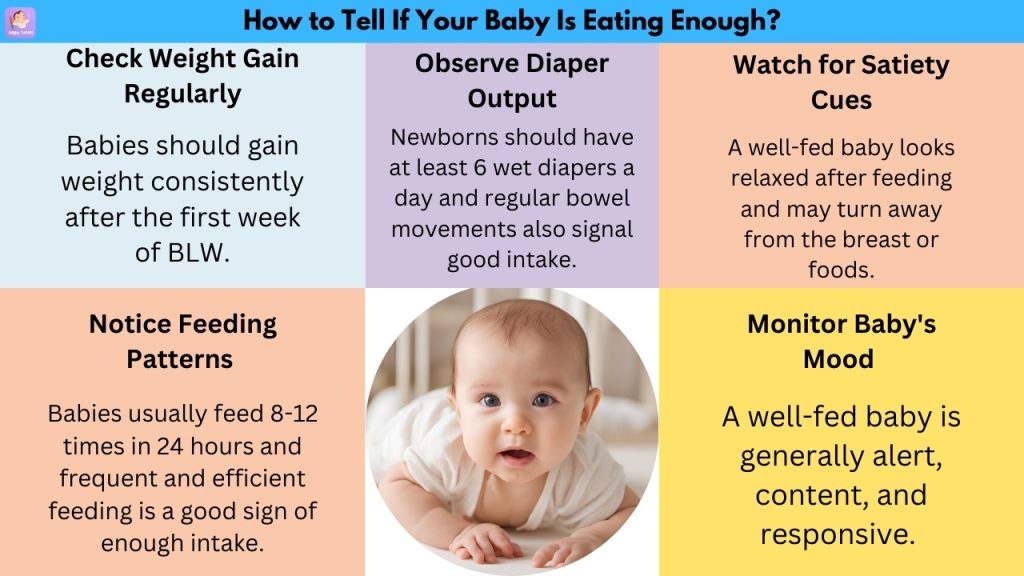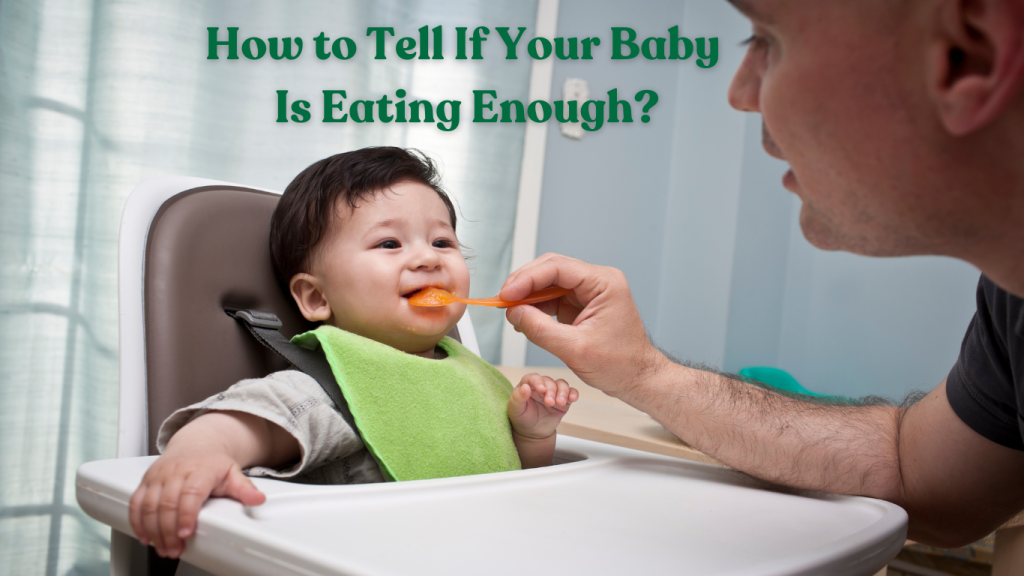Getting your child to eat well can make any parent worry. Some days they want more food than others. Your child might love carrots one day but refuse them the next day. These changing food likes are totally normal for growing children.
Let’s look at some easy ways to know if your child is eating enough. We’ll talk about portion sizes that make sense for little tummies. You’ll learn to spot the signs that show your child is well-fed. Together, we can make mealtimes less stressful and more fun.
Understanding Baby Appetites: What’s Normal and When to Be Concerned
Babies have days when they eat more or less than usual. Your baby might want lots of food during a growth spurt. Other times, they might not seem as hungry. This up and down in eating is very normal.
When teeth are coming in, your baby might not feel like eating much. Some days they will play more and need extra food. Other days they might be sleepy and eat less. Your baby knows how much food their body needs each day.
You see how your baby acts when it’s time to eat. Happy babies reach for their food and open their mouths wide. They smile when they see their bottle or food coming. These signs show your baby has a healthy hunger for food.
Sometimes you might worry if your baby isn’t eating well. You can call your doctor if your baby seems too tired all the time. Remember, every baby grows at their own pace. What works for one baby might not work for another. So you need to have patience during their BLW period.
Read More About – Infant Nutrition in the First 12 Months
Signs of a Healthy Appetite
- Consistent Growth: Your baby should gain weight. Most babies follow their own growth path. The doctor will check if your baby is growing well at each visit.
- Active and Alert: They should have lots of energy to play. Babies who eat well like to wiggle, smile, and look around their world. Your baby might want to crawl or bounce right after eating. These active signs show they’re getting good food and energy.
- Positive Mood: Your baby should seem calm after eating enough. Most babies smile and coo when they’ve had just the right amount.
- Balanced Food Interest: Healthy babies show interest when they see food coming. Your baby might reach out for the spoon or bottle with excitement. They often open their mouths wide when food is near.
- Fullness Cues: They might turn their head away from more bites. Some babies close their lips tight or push the spoon away. Your baby knows their tummy best so trust these stopping signs.

Signs You Should Consult a Doctor
- Persistent Food Refusal: It’s time to check with your doctor if your baby keeps saying no to food. Most babies love their favourite foods and drinks. Tell your doctor if your baby fights every meal.
- Sudden Appetite Drop: Sometimes babies eat less, but big changes need checking. Talk to your doctor if your baby suddenly stops eating normal amounts. Normal meals shouldn’t become tiny meals without a clear reason.
- Irritability After Meals: Happy meal times are good signs for babies. Fussy eating might mean tummy troubles or other issues. Your doctor needs to know if feeding makes your baby upset.
- Unexplained Weight Loss: Keep an eye on how your baby grows each week. Losing weight isn’t normal for healthy babies. Your doctor should check any weight loss that lasts more than a week.
Portion Control for Different Ages
6-9 Months
During these months, breast milk is still your baby’s most important food right now. You should start with one solid meal each day and offer breastmilk on demand. After two weeks, add another solid meal to their day and repeat the same every 15 days. Gradually increase their meals to 5 solid meals a day and stop at it.
10-12 Months
You can give them full 5-day solid meals with portion sizes according to their appetite. You can offer new foods like parathas, sabjis and rotis, idli with sambar and chutney, and even wadas dipped in dahi or sambar. Some babies eat more, some eat less so both are fine. You can keep giving milk between solid meals.
1-2 Years:
Now your toddler is all trained to feed themselves. You can fill their plates and bowls and let them decide when they’re done. Don’t worry if they eat different amounts each day. They know their hunger signals best. Give them baby-friendly spoons and forks and let them practise eating.
Read More About – Breastfeeding and Solids
How Much Food Is Enough For Your Baby?
The fact is that there is no such thing as enough portion size for your baby or for any baby! Babies are active little beings and their appetite changes from day to day and even from morning to evening.
Some days your baby may take a few bites of paneer paratha and other days they might gobble up 2 paneer parathas. Both are fine and both are normal. A baby’s appetite depends on several factors, they may eat less due to teething, fever, or simply because they don’t feel like it.
The best thing to do is to let your baby decide how much they want to eat. Never force feed your baby or resort of distraction feeding as they both lead to unhealthy eating habits later in life.
Additional Tips and Things to Remember
- Respect Cues: Let your baby tell you when they’ve had enough food. Never make them eat more than they want. Your baby shows you when they’re full by turning away.
- Be a Role Model: Your baby loves to copy what you do at meal times. So you eat lots of yummy and healthy foods with your baby. You can try new foods together as a family.
- Routines Work: Try to feed your baby at the same time each day. These regular meal times help babies feel safe. You can give them snacks between meals to keep their energy up. Your baby will learn when food time is coming.
- Stay Patient: Some babies need time to like new foods so try foods many times in small bits. Don’t give up if they say no at first.
Click Here for Advisers – Happy Eaters




